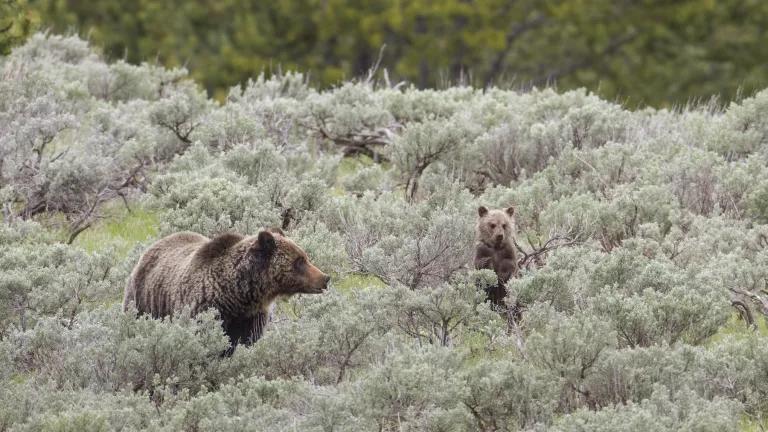
Congressmen John Garamendi (D-CA) and Don Young (R-AK) reintroduced the “Wildlife Conservation and Anti-Trafficking Act (H.R. 864). The bill aims to tackle the black-market trade in illegal wildlife and seafood products—the fourth most lucrative global crime—only trailing illicit drugs, human trafficking, and counterfeiting .
Unfortunately, the bill didn’t get much action last session, despite bipartisan support. However, with the change in House leadership it seems like the bill may now get the attention it deserves.
Here are five reasons to support the bill:
1. Eases prosecution of wildlife traffickers and increases penalties – H.R. 864 makes serious wildlife trafficking violations predicate offenses (crimes that are components of more serious offenses) under federal racketeering and anti-organized crime laws (Racketeer Influenced and Corrupt Organizations Act (RICO) and the Travel Act), enabling such offenses to be investigated and prosecuted under statutes that were designed to target high-level organized crime and terrorist activity and increasing penalties. This builds on the Eliminate, Neutralize, and Disrupt (END) Wildlife Trafficking Act (enacted in 2016), which made wildlife trafficking a predicate offense under the federal money laundering criminal statute, as well as recommendations the Presidential Task Force on Wildlife Trafficking provided in its 2014 National Strategy for Combatting Wildlife Trafficking. The bill also directs any civil penalties, fines, forfeitures, and restitution from such violations to wildlife conservation.
2. Strengthens enforcement of illegal, unreported, and unregulated (“IUU”) fishing – H.R. 864 makes serious violations for IUU fishing by foreign vessels or fraudulent seafood imports into the U.S. a predicate offense under the federal money laundering criminal law, opening up avenues for enforcement and increasing penalties. It also directs funds received by the U.S. government for violations of the Magnuson-Stevens Act related to IUU fishing towards fisheries enforcement. IUU fishing is a $10-25 billion-dollar global industry that jeopardizes the sustainability of the world’s fish and degrades ocean ecosystem health. IUU fishing often goes hand-in-hand with transnational organized crime, human rights abuses such as human trafficking and forced labor, and weapons and drug trafficking. IUU fishing hurts U.S. fishermen who comply with fishing regulations—U.S. fishermen lose an estimated $1B annually in lost profits to IUU.
3. Rewards whistleblowers who provide intelligence on global wildlife trafficking rings – The bill mandates that awards be paid to whistleblowers who report on wildlife trafficking, thus strongly incentivizing whistleblowing. It also directs agencies to raise awareness of such awards, particularly in wildlife trafficking hot spots like Tanzania, Laos, and India. As the National Whistleblower Center's Scott Hajost wrote, “At its core, wildlife trafficking is a business. Whistleblowers have been incredibly effective in cracking down on financial and corporate crimes. It is time we apply this methodology to the wildlife sphere.”
4. Provides funding for wildlife conservation programs – Currently, many international wildlife conservation programs are funded by Congressional appropriations on a yearly basis. But these funds aren’t usually enough and securing more money through this process is very difficult. H.R. 864 helps fix this problem by providing additional dedicated funding streams to top-off funding received via appropriations. The bill does this by directing funds received by the U.S. government (e.g., fines, restitution, proceeds from sales of forfeited assets, etc.) from violations under the Endangered Species Act or Lacey Act pertaining to great apes, marine turtles, freshwater turtles, and tortoises, to the conservation of these species. It also directs funds received by the government from violations of the Marine Mammal Protection Act to marine mammal conservation. Finally, it directs funds from violations of the Magnuson-Stevens Act related to shark finning (or fishery management plans for sharks), to shark conservation.
5. Authorizes the U.S. Fish and Wildlife Service to station law enforcement officials and agency personnel in wildlife trafficking hot spots, as embeds in American embassies and consulates – The Service would benefit from placing highly-trained law enforcement officials in wildlife trafficking areas to help investigate trafficking cases, and then train others to do the same. Indeed, the attaches this administration posted to foreign countries, to help combat wildlife trafficking, have provided extensive support to local authorities engaged in wildlife trafficking investigations. Furthermore, these individuals provide vital access to Service resources such as the National Fish and Wildlife Forensic Laboratory and the Digital Evidence Recovery and Technical Support Unit, that help initiate several transnational organized crime investigations involving wildlife trafficking. More of this is definitely a good thing.
House leaders will have an opportunity to vote on the fate of some of our planet’s most vulnerable creatures. By supporting H.R. 864, elected officials will stand by wildlife advocates who work to protect imperiled species. Just as important, they will help create a law that responds to public demand for protection of endangered animals. Let’s hope the new majority answers this call from the wild.




